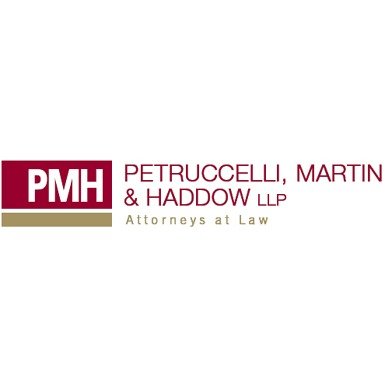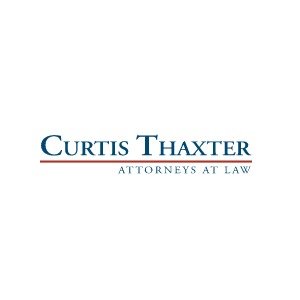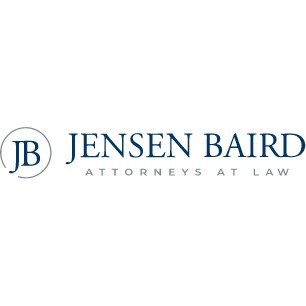Best Financial Services Regulation Lawyers in Maine
Share your needs with us, get contacted by law firms.
Free. Takes 2 min.
Or refine your search by selecting a city:
List of the best lawyers in Maine, United States
About Financial Services Regulation Law in Maine, United States
Financial services regulation in Maine governs the activities of financial institutions, consumer finance providers, lenders, and various other businesses that deal with money and financial transactions. This area of law aims to ensure that all entities operating within the financial sector adhere to state and federal standards for fair and transparent practices, maintain solvency, and protect consumers from unfair or deceptive acts. In Maine, the Bureau of Consumer Credit Protection and the Maine Bureau of Financial Institutions are the primary agencies that oversee these regulations. Regulations cover a wide range of activities, including banking, lending, mortgages, credit services, investment advising, and debt collection practices.
Why You May Need a Lawyer
Navigating the legal requirements in financial services can be challenging, especially for individuals and businesses unfamiliar with the complexities of Maine’s regulatory environment. Here are common situations where legal expertise may be crucial:
- Starting or operating a bank, credit union, or financial services business in Maine - Seeking licensure for mortgage lending, brokering, or servicing - Facing enforcement action or disciplinary proceedings from state regulators - Drafting or reviewing loan agreements, consumer disclosures, or privacy policies - Responding to consumer complaints or investigations - Allegations of unfair, deceptive, or abusive acts or practices - Guidance on compliance with both Maine and federal regulations (such as the Truth in Lending Act, Fair Debt Collection Practices Act, etc.) - Mergers, acquisitions, or restructuring of financial institutions - Handling securities offerings or investment advisory services - Assisting with audits and regulatory examinations
Local Laws Overview
Maine has a robust legal framework controlling the operations of financial services providers. Some key local laws and regulations include:
- The Maine Consumer Credit Code, which regulates consumer lending, credit reporting, and collection activities - Licensing requirements for any entity engaging in mortgage brokering, loan origination, payday lending, and money transmission - The Maine Banking Code, covering the formation, management, and operation of banks and credit unions - Additional rules for securities sales and investment advising enforced in coordination with the Maine Office of Securities - Consumer protections related to interest rate caps, disclosure obligations, and non-discrimination in lending - Specific procedures for responding to consumer complaints and regulatory inquiries - Ongoing reporting and examination requirements for licensed financial businesses - State enforcement mechanisms, including monetary penalties and license suspension or revocation for violations
Frequently Asked Questions
What state agencies oversee financial services regulation in Maine?
The Maine Bureau of Financial Institutions and Maine Bureau of Consumer Credit Protection are the primary agencies. The Maine Office of Securities regulates securities and investment advisers, while federal laws may also apply.
Do I need a license to offer loans or financial products in Maine?
Yes, most financial services businesses, such as lenders, mortgage brokers, loan originators, and money transmitters, require state licensure. The type of license depends on the specific activities your business conducts.
Are banks and credit unions in Maine subject to unique state laws?
Yes, Maine’s Banking Code includes provisions that are specific to institutions chartered or operating within the state, in addition to federal banking laws and regulations.
What consumer protections are provided under Maine law?
Maine law requires clear disclosures of loan terms, caps on certain interest rates and fees, protections against unfair or deceptive acts, and a process for resolving consumer complaints.
How does Maine regulate payday loans and high-interest lending?
Payday lending is closely regulated under the Maine Consumer Credit Code, which sets strict requirements for permissible interest rates, fees, and consumer disclosures. Additional limitations apply to repeat lending.
Can out-of-state financial institutions operate in Maine?
Yes, but they must comply with Maine’s licensing, registration, and consumer protection requirements if they serve Maine residents or have a physical presence in the state.
What are the penalties for violating financial services regulations?
Penalties may include fines, restitution to consumers, injunctive orders, loss of licensure, and even criminal charges for willful violations in certain cases.
Are there special rules for debt collectors and credit reporting agencies?
Yes, Maine imposes licensing and conduct standards on debt collectors and credit reporting agencies, in addition to requirements under federal law such as the Fair Debt Collection Practices Act.
Do financial advisors and investment firms need to register in Maine?
Most financial advisors and investment firms must register with the Maine Office of Securities before offering services to residents. There are some exceptions, so legal guidance is recommended.
What should I do if I receive a complaint or investigation notice from a regulator?
Seek legal advice immediately to understand your rights and obligations. Timely and accurate responses to regulatory inquiries are critical, and an attorney can assist in preparing your response.
Additional Resources
If you are seeking further information or need to clarify your obligations, the following Maine government agencies and organizations can offer valuable resources:
- Maine Bureau of Financial Institutions - Maine Bureau of Consumer Credit Protection - Maine Office of Securities - Office of the Maine Attorney General - Consumer Protection Division - Consumer Financial Protection Bureau (CFPB) for federal laws - Maine State Bar Association for lawyer referrals
Next Steps
If you need legal assistance or have questions about your compliance obligations under Maine’s financial services laws, consider the following actions:
- Make a detailed list of your business activities or specific concerns - Gather all relevant documents, including licenses, notices from regulators, consumer complaints, and contracts - Reach out to an attorney experienced in financial services regulation in Maine - Prepare questions in advance to make the most of your consultation - Follow up on advice promptly to ensure ongoing compliance - Utilize state and local resources to stay informed about regulatory changes and new requirements
Seeking experienced legal counsel can help you avoid costly penalties and ensure that your business operates in accordance with all applicable Maine and federal financial services regulations.
Lawzana helps you find the best lawyers and law firms in Maine through a curated and pre-screened list of qualified legal professionals. Our platform offers rankings and detailed profiles of attorneys and law firms, allowing you to compare based on practice areas, including Financial Services Regulation, experience, and client feedback.
Each profile includes a description of the firm's areas of practice, client reviews, team members and partners, year of establishment, spoken languages, office locations, contact information, social media presence, and any published articles or resources. Most firms on our platform speak English and are experienced in both local and international legal matters.
Get a quote from top-rated law firms in Maine, United States — quickly, securely, and without unnecessary hassle.
Disclaimer:
The information provided on this page is for general informational purposes only and does not constitute legal advice. While we strive to ensure the accuracy and relevance of the content, legal information may change over time, and interpretations of the law can vary. You should always consult with a qualified legal professional for advice specific to your situation.
We disclaim all liability for actions taken or not taken based on the content of this page. If you believe any information is incorrect or outdated, please contact us, and we will review and update it where appropriate.
Browse financial services regulation law firms by city in Maine
Refine your search by selecting a city.














